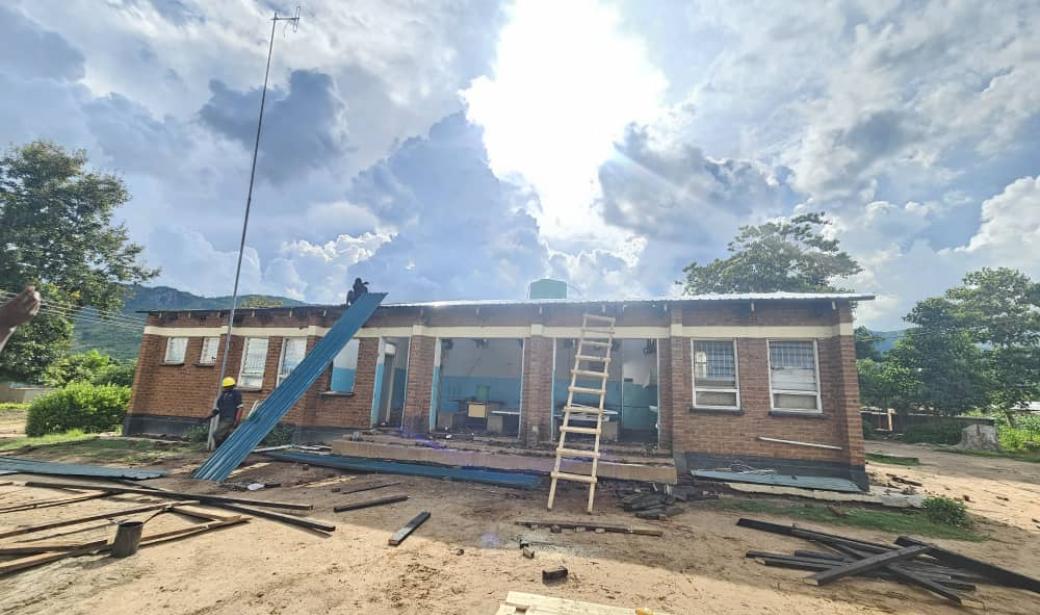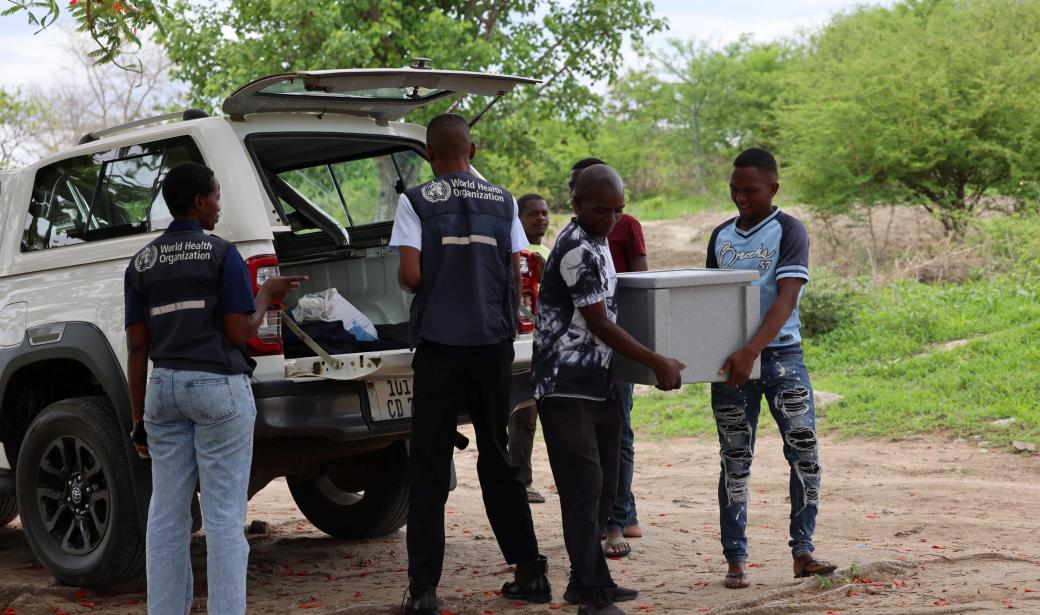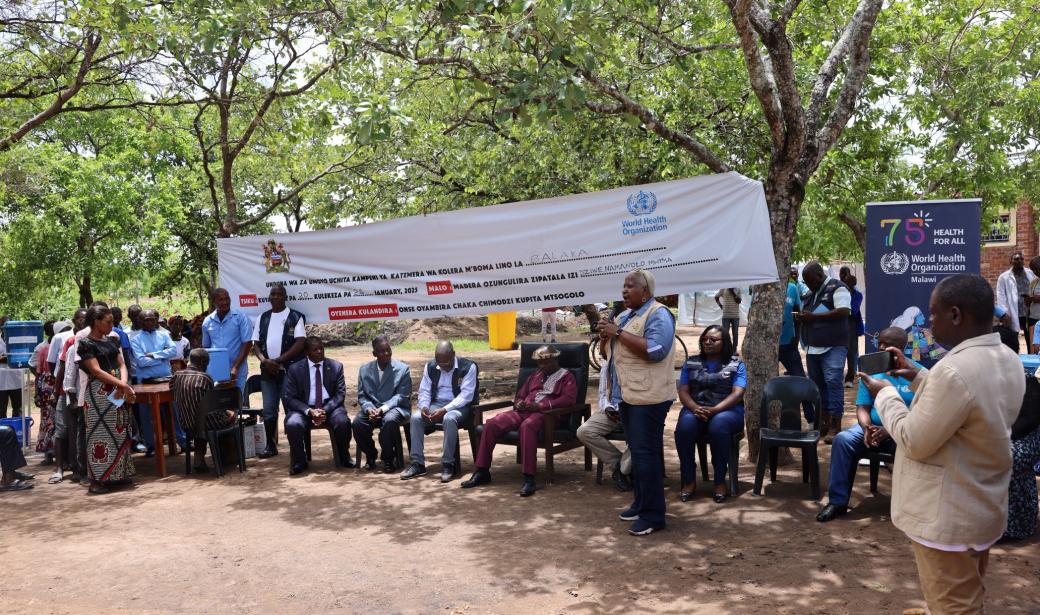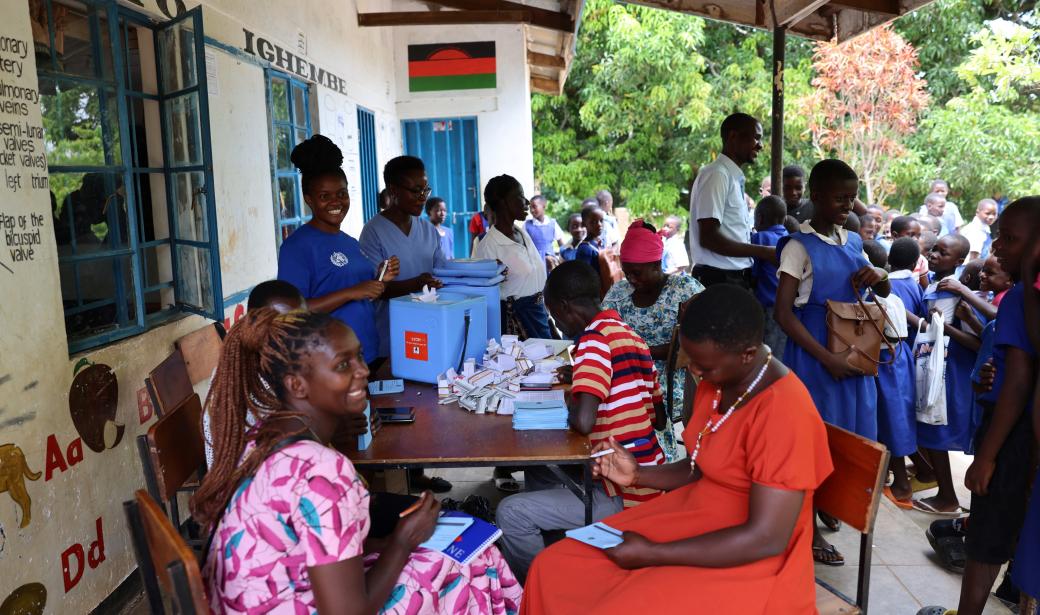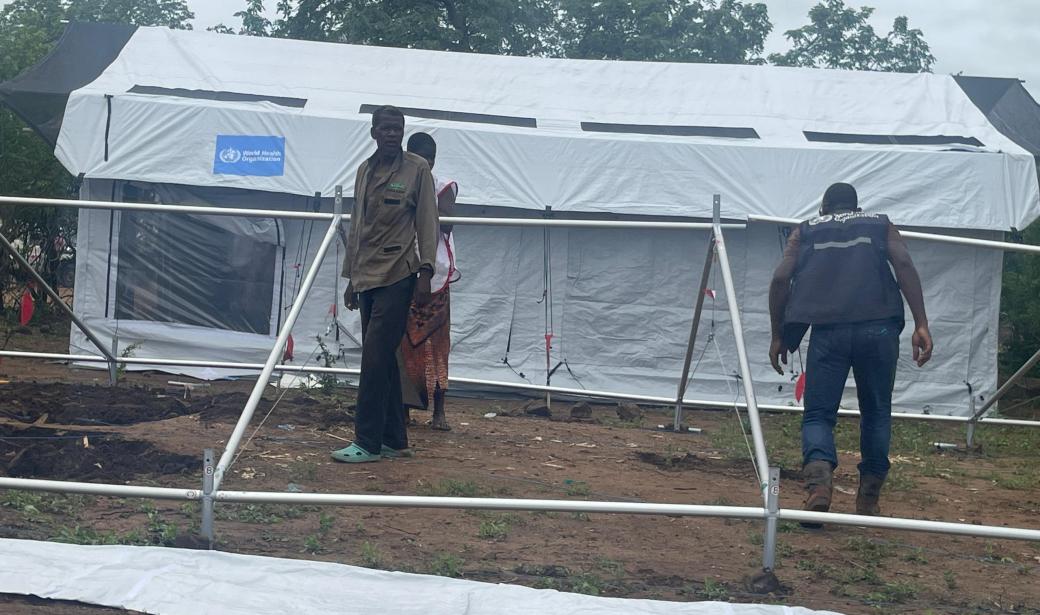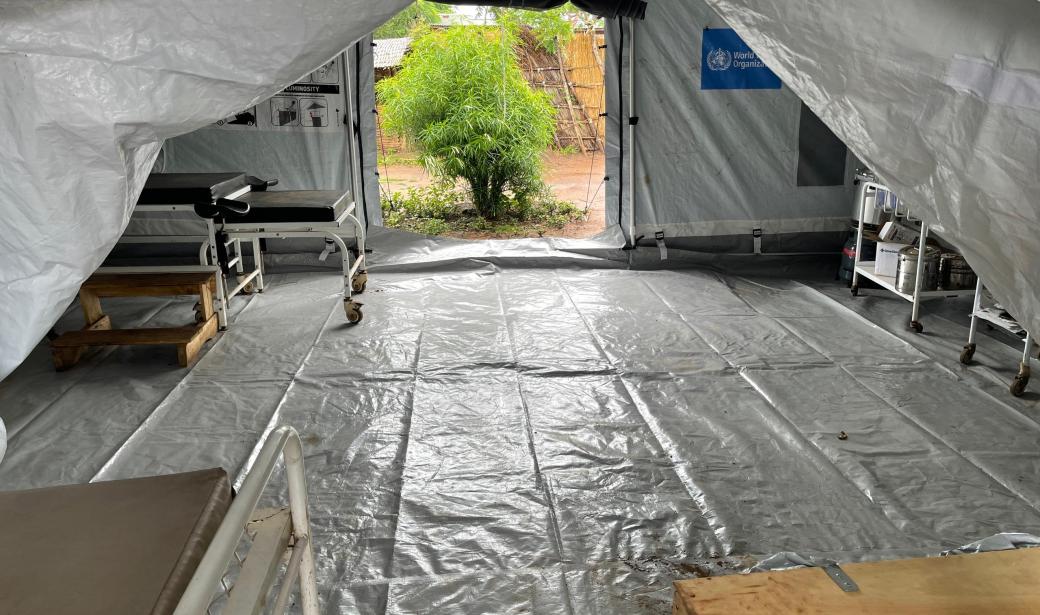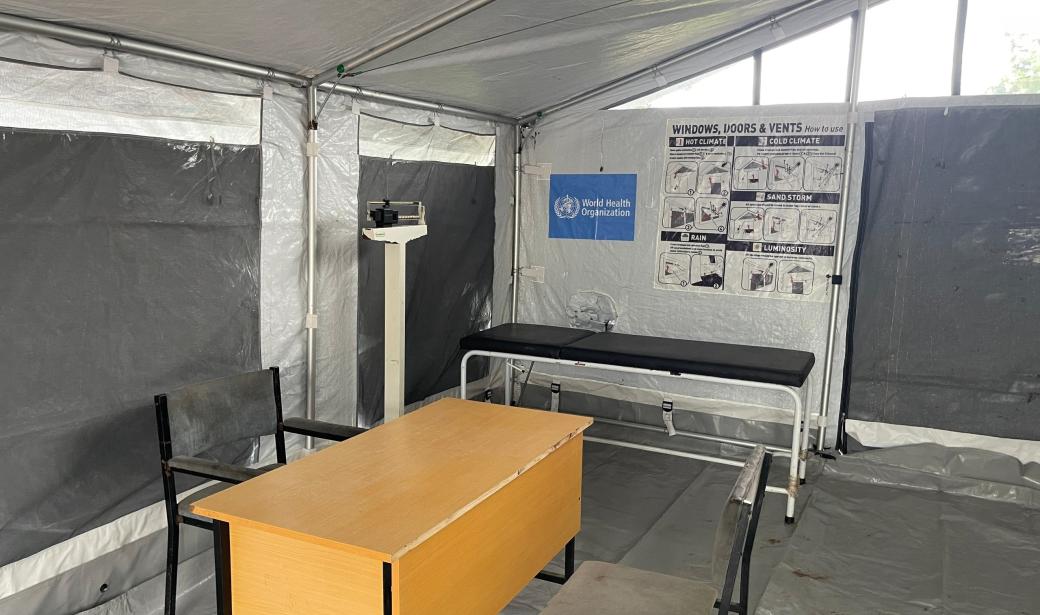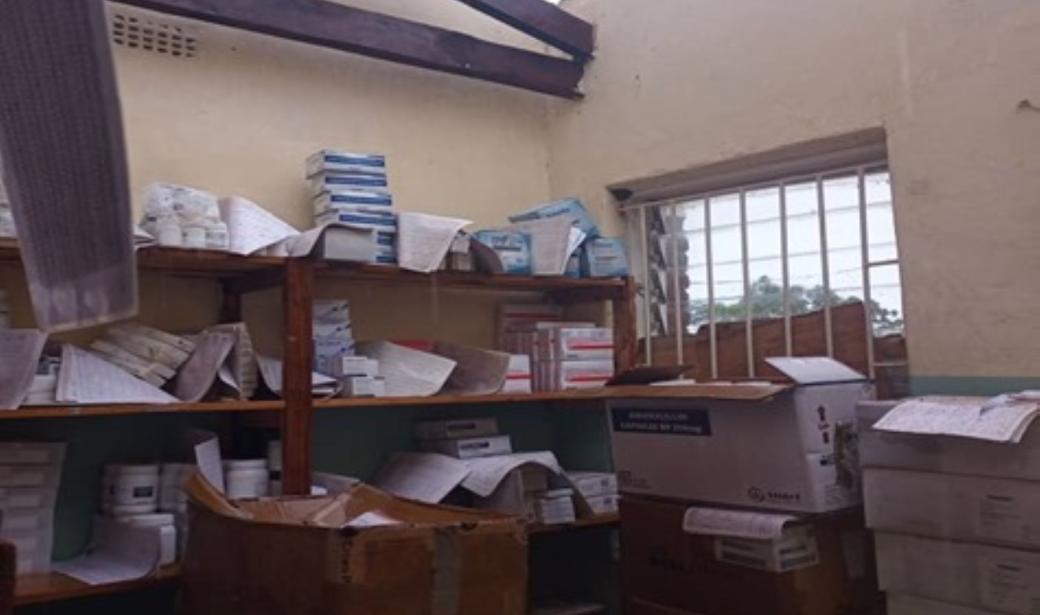Lilongwe – George Jammuh, officer in-charge at Mganja health centre in Dedza district in southern Malawi clearly recalls the day in mid-December 2024 when Cyclone Chido made landfall. “The day of the cyclone was a very scary day for our staff and patients,” he says. “The nurse on duty hid in a corner as she watched the roof blow off. Everything changed from that time because of the extensive damage to the facility, all services were halted.”
More than 45 000 people have been affected by the cyclone which damaged homes, roads and other public infrastructure across 18 districts in the south of the country. Destruction of medical supplies and equipment and damage to health facilities as well as flooding of hygiene and sanitation infrastructure such as toilets and hand-washing stations drove up the risk of infectious diseases such as cholera. 300 cholera cases and 14 deaths had been reported in Mzimba North, Rumphi, Karonga, Balaka and Machinga since September 2024. Balaka and Machinga, were at the point already responding to the outbreak.
“The effects of the cyclone have been felt by tens of thousands of Malawians served by the affected health facilities. World Health Organization has been supporting the Ministry of Health to ensure we respond to disease outbreaks and continuity of essential health services as we recover and rebuild from t
WHO also trained 24 Ministry of Health emergency medical team members on how to establish, maintain and decommission temporary treatment centres to better manage displaced populations and treat injuries effectively.
To support infection prevention and control (IPC) measures, rapid assessments were conducted, and training and supportive supervision provided to IPC focal people in priority district
“We have kept the solar panels within the damaged facility to keep the refrigerators for the vaccines functioning,” says Jammuh. “We are currently using an incomplete waiting shelter to keep the other essential supplies and run antiretroviral clinics for people living with HIV. The conditions of the building are not ideal to keep medicines, but we are doing our best, with support from our partners.”
WHO continues to support the Ministry of Health during the recovery period from the cyclone. WHO recently supported Mganja health centre, one of the hardest hit facilities, with three tents to ensure continuity of essential health services. The tents will act as shelters for provision of health services until rehabilitation of the facility’s infrastructure is complete.
bunyao [at] who.int (bunyao[at]who[dot]int)
+265 999 930 280



